About Dwight D Eisenhower VA Medical Center
Overlooking the Missouri River in Leavenworth, Kansas, is the Dwight D. Eisenhower VA Medical Center. This is a comprehensive medical healthcare facility that treats active duty military numbers and veterans who are struggling with their mental or physical health.
They also have specialized services if you’re navigating addiction struggles or have a dual diagnosis. They provide both inpatient and outpatient services here. Along with most major insurance providers, they also accept VA benefits.
The facility sits right on the edge of the Missouri River. There’s also the Veterans Administration Park behind the facility which serves as a beautiful natural landscape for you to immerse yourself in as you reflect on your recovery.
As with many VA clinics, the facility’s appearance is itself quite dated. However, inside you’ll find a warm and inviting atmosphere. Although it’s a clinical setting, the friendly staff helps take away any feelings of anxiety or unease that many people who seek medical care often feel. They also have additional tracks for women, LGBTQ+ members, and older vets. That way, they can address any underlying mental or behavioral stressors that can fuel an addiction.
A referral is needed for their addiction recovery services. However, you can obtain a referral through a standard appointment at this location. During your first appointment, you’ll undergo a thorough evaluation to determine what your addiction struggles are and whether inpatient or outpatient care will best suit you.
Leavenworth is a small town that sits just north of Kansas City, and it provides you with a quiet and calming rural setting for you to receive addiction recovery services. You can focus on your recovery and cancel out the noise of the busy city.
However, because it’s just over 30 miles outside of downtown, you’ll still have access to big city attractions like the Kansas Speedway or catching a Kansas City minor league game. There are plenty of recreational outdoor activities to enjoy here as well.
Addiction Treatment Programs
Alcohol Rehab
Alcohol rehab in Kansas provides professional treatment to help clients overcome alcohol misuse and build a substance-free life. High-quality treatment lays a foundation for sobriety and helps prevent relapses by giving you new ways of thinking, better coping skills, and a better understanding of key life skills such as emotional regulation and communication.
Dual Diagnosis
It’s common to have both a mental health disorder and substance use problems. The right rehab in Kansas can treat both issues. A mental health diagnosis can feed into an addiction, making both worse. In a dual diagnosis program, these concerns are addressed along with typical evidence-based detox, inpatient treatment, and outpatient care.
Opioid Addiction
If you’re looking to break free of opioid addiction, a high-quality rehab in Kansas can help. Whether you need detox, inpatient treatment, or outpatient care, an opioid program will help you build a new lifestyle based on healthy coping mechanisms, better relationships, and a new way of thinking about life.
Adult Program
An adult program in Kansas helps clients overcome substance use and address issues such as employment and family. Adults often have challenges related to their careers, raising a family, and handling responsibilities. These concerns are addressed during evidence-based detox, inpatient treatment, and outpatient care.
Senior Rehab
The best way to achieve long-term recovery, if you are older in Kansas, may be to find a senior rehab. Older Americans often deal with chronic pain, loneliness, financial issues, and more. These concerns are addressed along with typical evidence-based detox, inpatient treatment, and outpatient care.
LGBTQ Friendly Rehab
The best way to achieve long-term recovery if you are a member of the LGBTQ+ community in Kansas may be to find an LGBTQ+ friendly rehab. Some of the common services will include counseling and classes on coping skills, emotional management, communication, and other key life skills. LGBTQ+ friendly programs can provide inpatient or outpatient treatment.
Military Rehab
Being a military member or veteran is uniquely challenging. Choose a military rehab in Kansas to get the support you need to overcome addiction and learn new life skills. Service members and veterans have often experienced trauma civilians can’t imagine. These concerns are addressed along with typical evidence-based detox, inpatient treatment, and outpatient care.
Men's Rehab
Those who join a men’s rehab program in Kansas are given training in key life skills to help them address their unique challenges. Men often have questions about building their careers, being a father, and having healthy communication styles. These concerns are addressed along with typical evidence-based detox, inpatient treatment, and outpatient care.
Women's Rehab
Women need unique support, and a women’s rehab in Kansas can help them manage gender-specific concerns while overcoming addiction. Women often have questions about building their careers, raising children, and building healthy relationships. These concerns are addressed along with typical evidence-based detox, inpatient treatment, and outpatient care.
Young Adult Rehab
A young adult rehab in Kansas can provide every level of care while addressing the unique needs of young adults. Young adults often have questions about starting their careers, having a family, and living independently without overspending. These concerns are addressed along with typical evidence-based detox, inpatient treatment, and outpatient care.
Insurance Coverage
Medicaid
How do you pay for rehab in Kansas? If you qualify, a good option is Medicaid. Programs that accept Medicaid can offer any level of care, including detox, inpatient, and outpatient. Your out-of-pocket costs, if any, are likely to be very low.
Private insurance
How do you pay for rehab in Kansas? If you have private insurance, consider using your coverage to pay for some or all of the costs of treatment. Plans vary, so be sure to contact your insurer for details. You may have out-of-pocket costs such as deductibles and copays.
Self-pay options
Self-pay for addiction treatment in Kansas can give you maximum freedom in choosing your treatment center. You can write a check, use a medical loan, or send money electronically. The fee schedule may differ depending on the level of care.
Financing available
Paying for rehab in Kansas can be done in multiple ways, including using financing options if they are available. Financing options such as payment plans, scholarships, grants, and even medical loans make rehab more accessible. You can use these methods to pay for detox, inpatient treatment, outpatient care, and more.
Sliding scale payment assistance
Paying for rehab in Kansas can be done in multiple ways, including finding a program with a sliding scale payment plan. You qualify for a lower fee for detox, inpatient treatment, or outpatient care based on your income and family size.
Medicare
When you’re planning to use Medicare to pay for rehab in Kansas, there are a few details to keep in mind. Your coverage can pay some or all of the costs of rehab. Different Medicare plans have different coverage details, and it’s important to choose a center that accepts your plan.
Military insurance
Paying for rehab in Kansas can be done in multiple ways, including using military insurance. Your insurance plan can cover some or all of the cost of treatment. You’ll need to contact your insurer to find out what centers are in-network with your plan and what out-of-pocket costs you may be responsible for.
Levels of Care
- 1
Detox Treatment
Each rehab in Kansas is unique, but most of them start with detox. When you are free of all substances, which may take around a week, you’ll be ready to start building a bright future where you can chase your dreams and create the life you love.
- 2
Inpatient Rehab
In Kansas, inpatient treatment allows you to live full-time in a safe and supportive environment while getting the care you need to establish long-term recovery. Inpatient treatment programs generally last 30 to 90 days and include counseling and classes on emotional regulation, coping strategies, and other vital life skills.
- 3
Outpatient Rehab
For many people, it’s important to be able to work and attend school during treatment, and outpatient treatment in Kansas gives you that opportunity. Finishing residential treatment is a big step, and outpatient care allows you to have support while you learn to apply your new skills and habits in real-life situations.
- 4
Aftercare Support
Having long-term support and encouragement is vital for long-term recovery, and aftercare in Kansas provides those resources. Relapse prevention is a lifelong project, and having aftercare support like sober housing, recovery-focused activities, and a place to build healthy friendships can make all the difference.
Therapies
Cognitive Behavior Therapy
Cognitive behavioral therapy acknowledges that your thinking impacts your emotions and actions and helps you create healthier thought patterns. As you learn to identify thought distortions, your confidence in your ability to manage a wide variety of situations will grow. You’ll have the tools you need to address problems and manage triggers in a healthy way.
Dialectical Behavior Therapy
Dialectical behavioral therapy acknowledges that your confidence and coping skills have a big impact on your substance use habits. As you learn helpful coping strategies, your confidence in your ability to manage a wide variety of situations will grow. You’ll have the tools you need to address problems and manage triggers in a healthy way.
Family Therapy
Talking about what we’re going through is an important way to heal, and family therapy in Kansas gives you that opportunity. You have a safe environment to address challenging relationships, trauma, and other issues. Substance use treatment includes detox, inpatient treatment, and outpatient care, and family therapy may be a part of each of these stages. The goal is to help families address past events and broken relationships and develop healthy ways of relating to each other.
Group Therapy
Talking about what we’re going through is an important way to heal, and group therapy in Kansas gives you that opportunity. Sessions generally last 60 to 90 minutes and give you a chance to discover others’ experiences, hear about the impact of substance use, and learn important new life skills.
Individual Therapy
If you struggle with addiction in Kansas, it’s common to feel like no one understands you. Individual therapy can help you find professional support. During individual therapy, you have the freedom and confidentiality to share personal issues and past experiences that may impact your substance use. Your therapist will help you work through those concerns and develop new ways of handling them.
Rational Behavioral Therapy
Many people benefit from rational behavior therapy in Kansas because they gain tools to challenge irrational beliefs. As you learn to identify wrong beliefs, your confidence in your ability to manage a wide variety of situations will grow. You’ll have the tools you need to address problems and manage triggers in a healthy way.
Trauma Therapy
During trauma-informed therapy in Kansas, clients will receive support that acknowledges what they’ve been through and helps them craft a healthier response. Because trauma can be a significant trigger for substance use, trauma-informed therapy will help you understand what happened to you, realize that it was wrong, and create a healthier way of relating to that memory and the emotions you feel.
Accreditations
Location
Contact Dwight D Eisenhower VA Medical Center
Top Drug Rehab Centers in Kansas
-
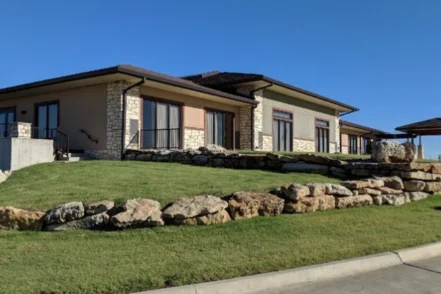 Kansas
KansasBel Aire Recovery Center
4969 N Tierra Lakes Pkwy Greenwich, Kansas 67226
-
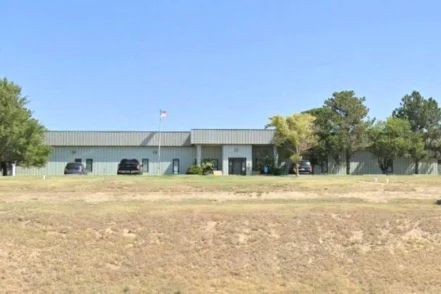 Kansas
KansasNew Chance Dodge City
2500 East Wyatt Earp Boulevard Dodge City, Kansas 67801
-
 Kansas
KansasFull Circle Education and Counseling
11605 South Burch Street Olathe, Kansas 66061
-
 Kansas
KansasMirror Kansas City
6723 State Avenue Kansas City, Kansas 66102
-
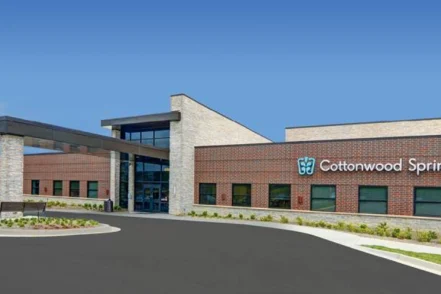 Kansas
KansasCottonwood Springs
13351 S. Arapaho Drive Olathe, Kansas 66062
-
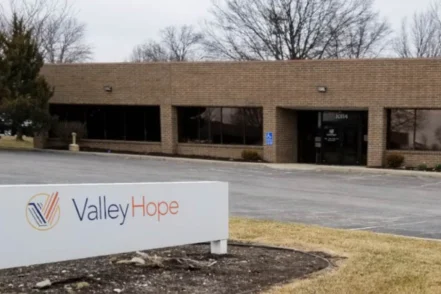 Kansas
KansasValley Hope of Overland Park
10114 West 105th Street, Suite 100 Overland Park, Kansas 66212
-
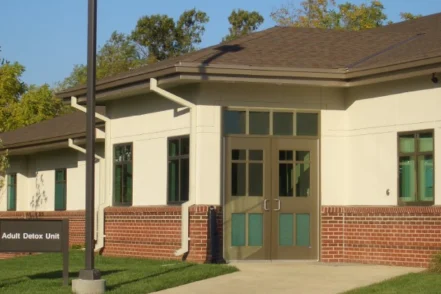 Kansas
KansasJohnson County Mental Health Center Adult Detox
11120 West 65Th Street Shawnee, Kansas 66203
-
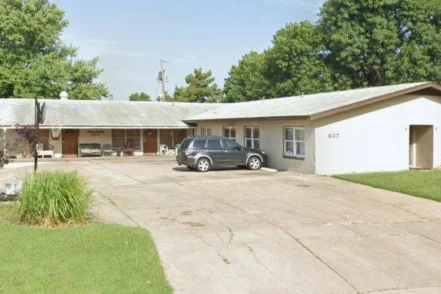 Kansas
KansasAtishwin Institute
937 South Bluffview Street Wichita, Kansas 67218
-
 Kansas
KansasValley Hope of Atchison
1816 North 2nd Street Atchison, Kansas 66002
-
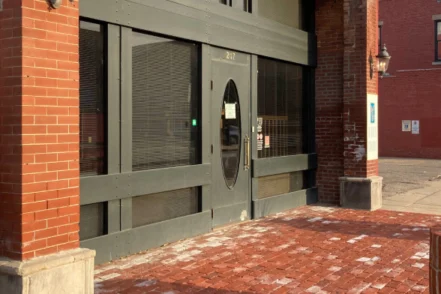 Kansas
KansasHigher Ground Wichita
247 North Market Street Wichita, Kansas 67202


